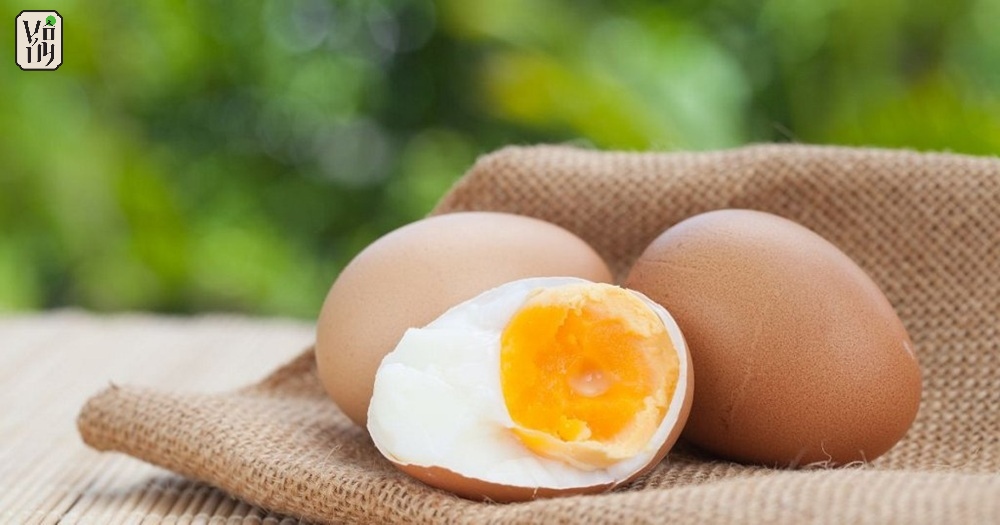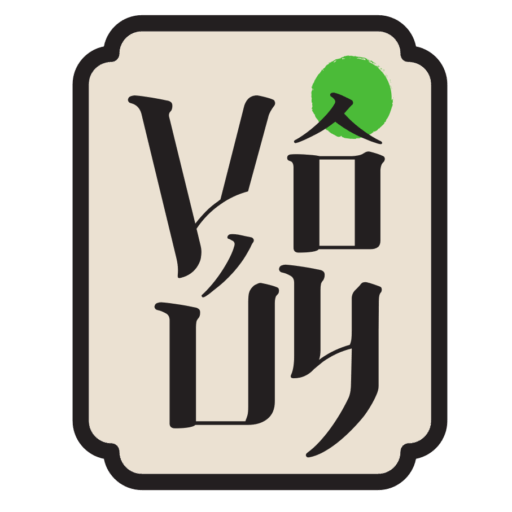Can Vegetarians Eat Eggs? A Buddhist Perspective
Vegetarianism is a lifestyle of mindfulness and compassion, yet the question “Can vegetarians eat eggs?” often leaves many people confused. In this article, Vo Uy Vegetarian Restaurant will explain in detail from the perspective of Buddhism, the different types of vegetarian diets, and the nutritional value of eggs. Let’s explore together so you can better understand and apply the vegetarian diet that works for you.
Why do people ask if vegetarians can eat eggs?
A vegetarian diet eliminates animal products that involve killing, such as meat and fish, while focusing on plant-based foods like vegetables, beans, nuts, and fruits. This way of eating not only supports health by lowering the risk of heart disease and diabetes but also nurtures compassion and avoids taking lives, in line with Buddhist values.
The question “Can vegetarians eat eggs?” arises because eggs are an animal product, leading to debates about whether they involve killing. In Buddhism, fertilized eggs are considered the beginning of life, so consuming them goes against the principle of compassion.
On the other hand, unfertilized eggs (non-fertilized eggs) are sometimes accepted in certain vegetarian traditions. This question is especially important for Buddhists, beginners to vegetarianism, or anyone who wants to maintain proper nutrition while still staying true to spiritual principles. This article will clarify these perspectives to help you make the right choice for your own practice.

Why do people ask if vegetarians can eat eggs?
Common Types of Vegetarian Diets
Lacto-Vegetarian Diet
This diet excludes meat, fish, poultry, and eggs but allows dairy products such as milk, cheese, and yogurt. It is common among Hindus and some Buddhists, emphasizing compassion and avoiding poultry products.
Followers of this diet need to supplement protein and vitamin B12 from foods like tofu or nutritional yeast. It is a good choice for those who want a simple vegetarian meal plan while remaining flexible with dairy. For example, yogurt can be enjoyed as a light dessert after a vegetarian meal.
Ovo-Vegetarian Diet
This type excludes meat, fish, poultry, and dairy products but allows eggs. Eggs provide complete protein, vitamin B12, and iron—nutrients often lacking in vegetarian diets. This approach is ideal for beginners or those who need extra nutrition.
To align with Buddhist values, it is recommended to choose unfertilized eggs. For instance, you can add boiled eggs or vegetable omelets to your vegetarian menu.

Common Types of Vegetarian Diets
Lacto-Ovo-Vegetarian Diet
This diet eliminates meat, fish, and poultry but allows both eggs and dairy products. It is considered one of the most flexible and balanced vegetarian diets, offering protein from eggs and calcium from dairy.
It is suitable for newcomers to vegetarianism or those who prefer a diverse menu. For example, pairing eggs with cheese can create a nutrient-rich dish. However, Buddhists may prefer to ensure eggs are unfertilized.
Pescatarian Diet
This approach avoids meat, poultry, eggs, and dairy but allows fish and seafood. It emphasizes protein from fish and is chosen by those who want the health benefits of vegetarianism while still including seafood.
The exclusion of eggs here is usually a personal choice or aimed at reducing reliance on poultry. However, Pescatarian diets are less common in Buddhist communities due to concerns about killing animals. If you choose this diet, it is best to select seafood from sustainable sources.
Vegan Diet
Veganism excludes all animal products, including meat, fish, eggs, dairy, and honey. Vegans avoid eggs because they believe egg production can harm animals and is tied to industrial farming practices. This diet reflects a commitment to absolute compassion and animal rights.
To stay nutritionally balanced, vegans need to supplement vitamin B12, iron, and omega-3 through chia seeds, nutritional yeast, or supplements. It is best suited for experienced vegetarians with strong knowledge of nutrition.
Comparison of Vegetarian Diets and Egg Consumption
Here is a comparison chart showing how different vegetarian diets view eggs:
| Diet Type | Can Vegetarians Eat Eggs? | Main Reason | Best For |
|---|---|---|---|
| Lacto-Vegetarian | No | Avoid poultry products | Buddhists, Hindus |
| Ovo-Vegetarian | Yes | Provides protein & vitamin B12 | Beginners, those needing nutrition |
| Lacto-Ovo | Yes | Flexible and balanced nutrition | Starters, diverse meal planners |
| Pescatarian | No | Focus on fish & seafood | Those combining veg & seafood |
| Vegan | No | Avoid animal exploitation | Dedicated vegans, animal advocates |
Can Vegetarians Eat Eggs in Buddhism?
In Buddhism, following a vegetarian diet is closely linked to the principles of avoiding killing and cultivating compassion. Fertilized eggs (those that contain life) are considered to hold potential life, and therefore consuming them is seen as violating the precept against taking life.
On the other hand, unfertilized eggs (non-fertilized eggs) do not contain life, and thus are often permitted, especially in Mahayana Buddhist traditions. However, some Buddhists still avoid eggs entirely in order to fully embrace the spirit of compassion.

Can Vegetarians Eat Eggs in Buddhism?
Can Vegetarians Eat Industrial Eggs?
Most industrially produced eggs are unfertilized because hens are raised in environments without roosters. For this reason, eating these eggs does not break the Buddhist precept of avoiding killing. From a Buddhist perspective, such eggs can be accepted as part of a vegetarian diet, particularly for those who follow the ovo-vegetarian or lacto-ovo approach.
That said, it is important to verify the source of the eggs. For example, eggs from large commercial farms are typically unfertilized, making them suitable for vegetarians. Still, some people choose to avoid industrial eggs due to concerns about animal welfare and farming conditions.

Can Vegetarians Eat Industrial Eggs?
Nutritional Benefits of Eggs in a Vegetarian Diet
Eggs are a highly nutritious food, providing complete protein with all essential amino acids, as well as vitamin B12, vitamin D, and iron—nutrients that vegetarians may otherwise lack. One boiled egg (about 50g) contains around 6 grams of protein and 2.7 mcg of vitamin B12, which covers 100% of the daily requirement.
However, consuming too many eggs may raise cholesterol levels, so it is generally recommended to limit intake to 1–2 eggs per day if permitted in your diet. For vegetarians who include eggs, combining them with vegetables and whole grains helps create a more balanced meal. If you avoid eggs altogether, it is important to seek alternative sources of protein and vitamin B12 to maintain proper nutrition.
Egg Alternatives in a Vegetarian Diet
Plant-Based Substitutes for Eggs
If you follow a vegetarian diet without eggs, there are plenty of alternatives to maintain proper nutrition. Tofu, tempeh, and lentils are excellent protein sources, while chia seeds and flaxseeds provide omega-3 and fiber.
Vitamin B12 can be obtained from nutritional yeast or fortified plant-based milk, while iron is found in spinach and kale when paired with vitamin C-rich foods like oranges and bell peppers. For instance, you can create “vegan eggs” using mung bean flour or mashed potatoes as substitutes in fried dishes. These options are not only nutritious but also easy to find at local markets or supermarkets.

Egg Alternatives in a Vegetarian Diet
Sample Egg-Free Vegetarian Menu
To ensure balanced nutrition without eggs, here’s a suggested daily vegetarian menu from Vô Úy Vegetarian Restaurant’s blog:
-
Breakfast: Oatmeal cooked with plant-based milk, topped with chia seeds and fresh fruits like bananas.
-
Lunch: Brown rice with braised tofu and mushrooms, paired with a vegetable salad and fresh orange juice.
-
Dinner: Mushroom hotpot with rice noodles, served with vegan rice paper rolls and lemongrass lemonade.
This menu is diverse, delicious, and provides essential protein, vitamins, and minerals.
FAQs About Can Vegetarians Eat Eggs
Can vegetarians eat eggs in Buddhism?
According to Buddhism, unfertilized eggs are generally acceptable because they do not involve taking life. However, it’s best to consult different sources for clarity.
Can vegetarians eat industrial eggs?
Yes. Industrial eggs are usually unfertilized, making them suitable for ovo-vegetarians and in line with Buddhist views.
What nutrients should vegetarians without eggs supplement?
You should ensure adequate intake of vitamin B12, iron, and calcium from plant-based foods like tofu, nutritional yeast, or supplements.
Conclusion
So, can vegetarians eat eggs? The answer depends on the type of vegetarian diet you follow and your personal beliefs. In Buddhism, unfertilized eggs are often accepted as they do not break the precept of avoiding killing. However, vegans exclude eggs entirely to protect animal rights. Whichever path you choose, maintaining proper nutrition is essential for a sustainable vegetarian lifestyle.
For more nourishing vegetarian dishes, visit Vo Uy Vegetarian Restaurant.
Contact Information:
-
Address: 47, Street No. 3, CityLand Park Hills, Ward 10, Go Vap District, Ho Chi Minh City
-
Website: https://nhahangvouy.com/
-
Google Maps: Link Google Maps


 0902 353 527
0902 353 527  cskh@nhahangvouy.com
cskh@nhahangvouy.com 

